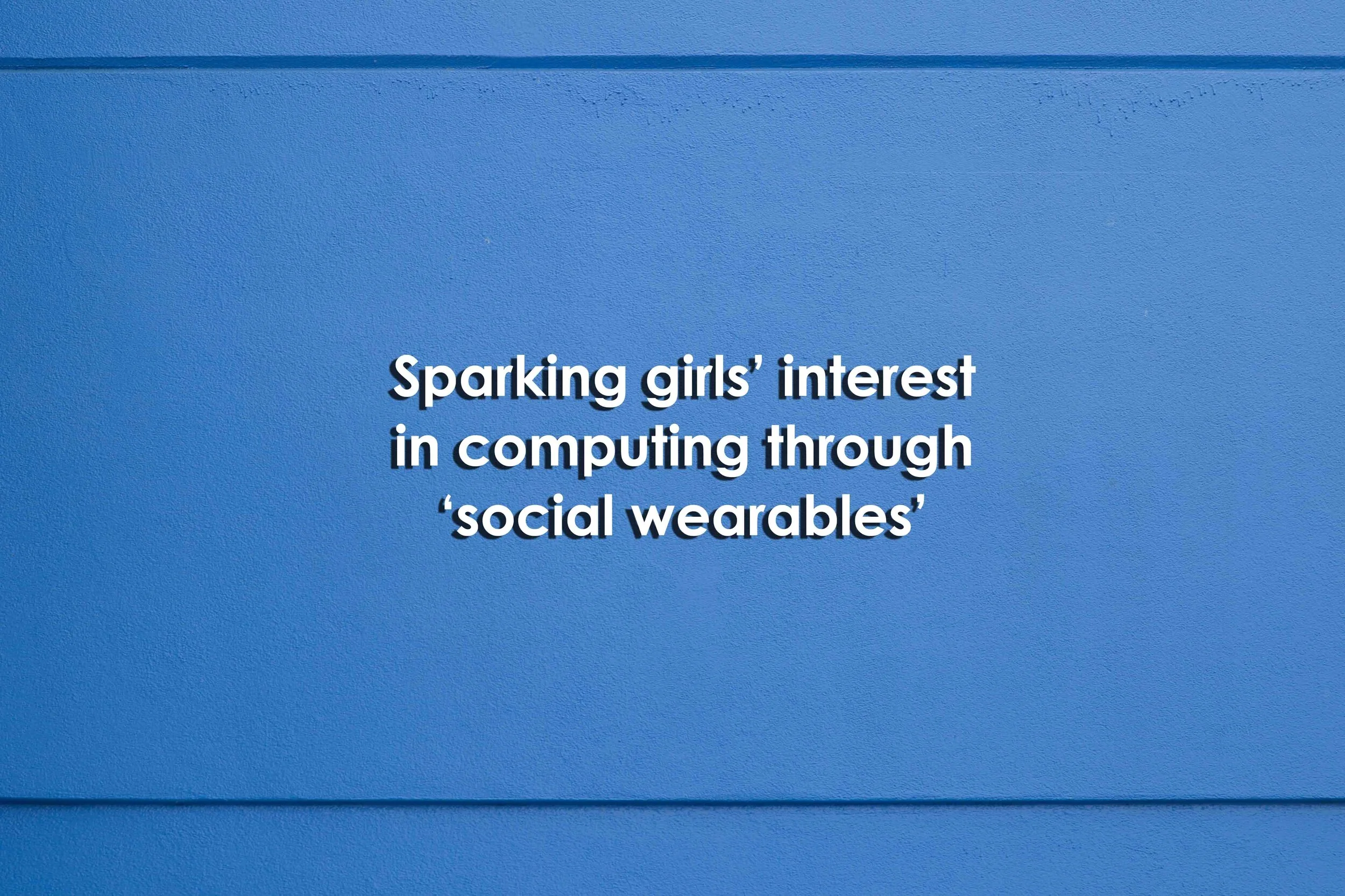Sparking girls’ interest in computing through ‘social wearables’
Sparking girls’ interest in computing through ‘social wearables’
Sparking girls’ interest in computing through ‘social wearables’
By Tim Stephens
July 29, 2020
Summary
The National Science Foundation has awarded a $1.2 million grant to a team led by Katherine Isbister, professor of computational media at UC Santa Cruz, to develop a summer camp for middle school girls focused on computational technology in a social context involving live action role-playing games.
The program targets middle school girls because that is an age at which many girls begin to lose interest and confidence in pursuing computing and technical subjects in school and as career options, said Isbister, who directs the Social Emotional Technology Lab in the Baskin School of Engineering.
"A lot of it is due to social influences, because children at that age are very sensitive to what is acceptable to their peers," she said.
Studies have shown that girls can become much more engaged when working on coding projects as part of a computational community and when the projects are socially relevant, Isbister said.
The idea for the summer camp emerged from her team's work on 'social wearables,' wearable technology designed to support and enhance social interactions.
"The LARP community is interesting because of their expertise in crafting social experiences and their attitudes toward technology-they will only adopt a technology if it enhances the shared experience of the group," Isbister explained.
Edu-LARP. The summer camp will use an educational LARP game as a sort of test bed for the development of social wearables by the participants, who will work together on designing and modifying wearable technology to support their social interactions in the game.
In designing the Social Wearables Edu-LARP camp, Isbister's team at UC Santa Cruz will be working closely with the Game Academy, which has years of experience offering classes and summer camps involving role-playing games.
External evaluation of the camp's effectiveness will be led by Jill Denner, senior research scientist at ETR. The first year of the project will focus on prototyping and testing, with the goal of running the first SWEL camp next summer.
"Our ultimate goal is to create a dynamic social and collaborative computational experience for the girls who attend these camps, which can have lasting impact on their future engagement with computation," Isbister said.
Reference
Stephens, T. (2020, July 29). Sparking girls' interest in computing through 'social wearables'. Retrieved August 02, 2020, from https://news.ucsc.edu/2020/07/social-wearables.html


